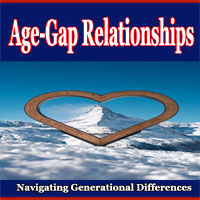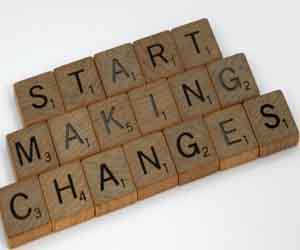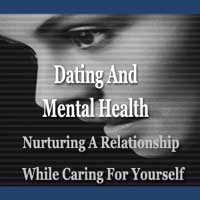


A Balancing Act

In the complex landscape of romantic relationships, the concept of commitment level plays a pivotal role in defining the nature and longevity of a partnership. It represents the degree to which individuals invest emotionally, mentally, and even legally in their relationships. Understanding and managing commitment levels is essential for building successful and fulfilling relationships. In this article, we'll explore the dynamics of commitment in relationships and how to navigate them effectively.
Understanding Commitment Levels
Commitment levels can vary widely from one relationship to another, and even within a single relationship over time. Here are a few dimensions that contribute to commitment levels:
Emotional Commitment: This pertains to the depth of one's emotional investment in the relationship. It involves feelings of love, attachment, and a sense of responsibility towards the partner.
Time Commitment: The time spent together, shared experiences, and the longevity of the relationship contribute to this aspect of commitment. Long-term relationships often involve a higher time commitment.
Future Commitment: This dimension focuses on planning and envisioning a shared future, including making long-term plans, such as marriage, family, or shared financial goals.
Legal And Financial Commitment: Marriage, cohabitation, joint financial ventures, and legal agreements are forms of formal commitment that carry significant implications and responsibilities.
Balancing Commitment Levels
Balancing commitment levels is a delicate process that involves aligning the expectations and desires of both partners. Here are some considerations to help manage commitment levels effectively:
1. Open Communication: Honest and transparent communication is the foundation of understanding and managing commitment levels. Partners should discuss their expectations and feelings about commitment, allowing for mutual understanding.
2. Take It Slow: Rushing into high levels of commitment can sometimes lead to problems. It's essential to allow a relationship to develop naturally and at a pace that feels right for both individuals.
3. Respect Individual Boundaries: It's crucial to acknowledge that people have different comfort levels regarding commitment. Respecting individual boundaries and personal space is key to a healthy relationship.
4. Reassess Over Time: As relationships evolve, commitment levels may need to be reevaluated. Life circumstances change, and what was appropriate at one point may not be so at another.
5. Seek Professional Guidance: In cases of significant disagreements or misunderstandings about commitment levels, it may be beneficial to seek the help of a relationship counselor or therapist who can provide guidance and mediation.
The Benefits Of Balanced Commitment
Balancing commitment levels in a relationship offers several advantages:
Emotional Well-Being: It promotes emotional stability and security within the relationship, reducing feelings of uncertainty or insecurity.
Freedom And Independence: Partners can maintain their individuality and personal goals while nurturing their relationship.
Reduced Pressure: Balanced commitment levels reduce the pressure to conform to societal or external expectations, allowing the relationship to develop naturally.
Long-Term Viability: A balanced approach to commitment often leads to the longevity of the relationship as both partners are on the same page regarding their level of involvement.
Commitment levels in relationships are a dynamic aspect that evolves over time. Finding the right balance that aligns with both partners' needs, expectations, and values is crucial for fostering a healthy, fulfilling, and enduring partnership. By maintaining open communication, respecting boundaries, and reevaluating as needed, couples can navigate the complexities of commitment in their relationships with greater ease and satisfaction.
 For most individuals, the first emotional connections are established within the family. The parent-child bond, in particular, is vital in shaping a person's emotional development. Infants learn to trust and love through their caregivers, and this early connection lays the groundwork for future relationships.
For most individuals, the first emotional connections are established within the family. The parent-child bond, in particular, is vital in shaping a person's emotional development. Infants learn to trust and love through their caregivers, and this early connection lays the groundwork for future relationships.
The emotional connection with one's family doesn't end in childhood. It evolves and matures over time. Siblings, for instance, often share an unbreakable bond that can last a lifetime. These connections offer a sense of belonging and a source of emotional support.
Friendships: Bonds Beyond Blood
Friendships are unique emotional connections. Unlike family, they are chosen connections, often grounded in shared interests, values, and experiences. Friends become confidants, companions, and pillars of support. These relationships offer a different perspective and, in some cases, an even deeper connection than family bonds.
Romantic Relationships: The Most Intimate Connection
Emotional connections in romantic relationships are among the most intense and profound. Partners share their hopes, fears, dreams, and vulnerabilities, forging a deep bond that can weather the storms of life. The quality of the emotional connection in a romantic relationship can significantly impact its longevity and overall satisfaction.
The Impact On Mental Health
Emotional connections have a profound impact on mental health. Strong, positive connections can reduce stress, increase happiness, and contribute to an overall sense of well-being. In contrast, a lack of meaningful emotional connections can lead to feelings of loneliness and depression.


Breaking Stereotypes And Finding Love
 The first challenge often faced by couples in age-gap relationships is societal judgment. Friends, family members, and even strangers may express skepticism or disapproval. It's important for individuals in such relationships to have a strong sense of self and unwavering confidence in their love. The opinions of others should not dictate the course of their love lives.
The first challenge often faced by couples in age-gap relationships is societal judgment. Friends, family members, and even strangers may express skepticism or disapproval. It's important for individuals in such relationships to have a strong sense of self and unwavering confidence in their love. The opinions of others should not dictate the course of their love lives.
One significant benefit of age-gap dating is the potential for a unique and complementary connection. The older partner typically brings wisdom, experience, and emotional stability to the relationship. This can provide guidance, reassurance, and a sense of security for the younger partner. Conversely, the younger partner can infuse the relationship with energy, a fresh perspective, and a more modern outlook on life, creating a harmonious balance.
Challenges may also arise due to differences in life stages and goals. The older partner may be thinking about retirement and travel, while the younger one may be focusing on career development and building a family. Effective communication is essential to ensure that these disparities are addressed and that both partners feel their needs are considered and respected.
 Secure Attachment And Healthy Adult Relationships
Secure Attachment And Healthy Adult Relationships
A secure attachment in childhood typically results in healthy, balanced adult romantic relationships. Individuals who experienced a supportive and nurturing environment during their early years tend to have a strong sense of self-worth and are comfortable with both intimacy and independence in their relationships. These individuals are better equipped to build and maintain emotional connections based on trust, open communication, and mutual support.
Anxious-Preoccupied Attachment: The Quest For Intimacy
Childhood experiences that lead to anxious-preoccupied attachment can significantly affect adult romantic relationships. People with this attachment style often crave intense emotional connections but may struggle with trust and fear abandonment. They might become overly dependent on their partners, seeking constant reassurance and attention, which can lead to challenges in maintaining a healthy, balanced relationship.
Dismissive-Avoidant Attachment: Fear Of Vulnerability
Childhood experiences marked by emotional neglect or inconsistency can result in dismissive-avoidant attachment. In adult romantic relationships, individuals with this attachment style often maintain emotional independence and may avoid vulnerability. They may find it difficult to form deep emotional connections due to their fear of being hurt or rejected.
Fearful-Avoidant (Disorganized) Attachment: A Complex Mix
The fearful-avoidant or disorganized attachment style is characterized by a blend of anxious and dismissive tendencies. These individuals may have complex emotional connections in their adult relationships, making it challenging to navigate the ebb and flow of emotional intimacy and independence.
Healing And Nurturing Positive Emotional Connections
Recognizing the impact of childhood experiences on adult romantic relationships is a vital first step. To heal and nurture these connections, consider the following:
Embracing A New Chapter In Love
 Embracing Change: One of the most important aspects of dating after divorce is the recognition that change is a part of life. The end of a marriage can leave emotional scars, but it also allows for personal growth and transformation. Embrace the idea that life is filled with opportunities, and new beginnings are just around the corner.
Embracing Change: One of the most important aspects of dating after divorce is the recognition that change is a part of life. The end of a marriage can leave emotional scars, but it also allows for personal growth and transformation. Embrace the idea that life is filled with opportunities, and new beginnings are just around the corner.
Healing And Self-Discovery: Before diving back into the dating pool, it's crucial to give yourself time to heal. Use the post-divorce period for self-reflection and personal growth. Understand what led to the end of your marriage, and what you've learned from the experience. This self-awareness can guide your future dating choices.
Rebuilding Confidence: Divorce can shake your confidence, but it's important to rebuild it. Rediscover your self-worth and remember that you are deserving of love and happiness. Reconnect with your passions, interests, and activities that make you feel good about yourself.
Setting Clear Intentions: Be clear about your dating intentions. Some individuals are looking for casual companionship, while others seek a long-term commitment. Setting and communicating your goals early on can prevent misunderstandings.
Learning From The Past: Your past marriage can be a source of wisdom. Reflect on what went right and what went wrong. Understand your role in the relationship dynamics and the lessons you've gained from the experience. Learning from your past helps you make more informed choices in future relationships.
Open Communication: Effective communication is a cornerstone of successful dating after divorce. Be honest about your past, your feelings, and your expectations. Encourage open dialogue with potential partners, allowing for a deeper connection based on trust and understanding.
Building Stronger Bonds
 2. Open And Honest Communication
2. Open And Honest Communication
Honesty is the bedrock of any successful relationship, and it becomes even more critical when dealing with mental health issues. Be open about your challenges with your partner when you feel comfortable. Sharing your experiences, needs, and boundaries creates understanding and empathy.
3. Setting Boundaries
Setting clear and healthy boundaries is vital. Understand your own limits and communicate them to your partner. Respect your partner's boundaries as well. This paves the way for a balanced and respectful relationship.
4. Seeking Professional Help
If your mental health issues are significantly impacting your well-being or your relationship, consider seeking professional help. Therapy or counseling can provide you with strategies to cope with challenges and improve your mental health.
5. Self-Care And Support Network
Prioritize self-care by maintaining healthy routines, engaging in physical activity, and practicing relaxation techniques. Build a support network of friends and family who can provide emotional support when needed.
6. Dealing With Rejection And Setbacks
Not every date or relationship will result in a lasting connection, and rejection can be a part of the dating process. It's essential to develop resilience and not take rejection personally. Remember that finding the right partner is a journey.